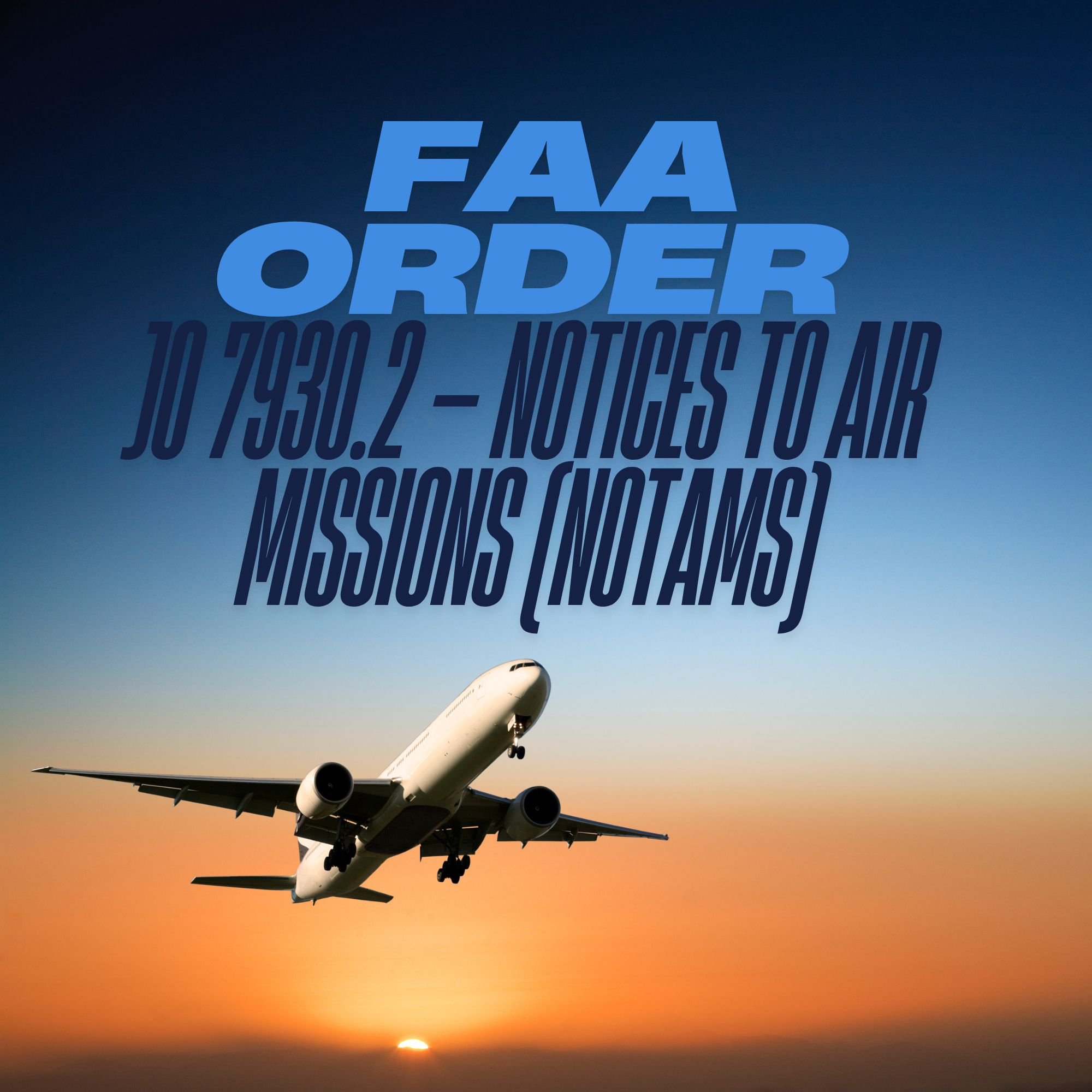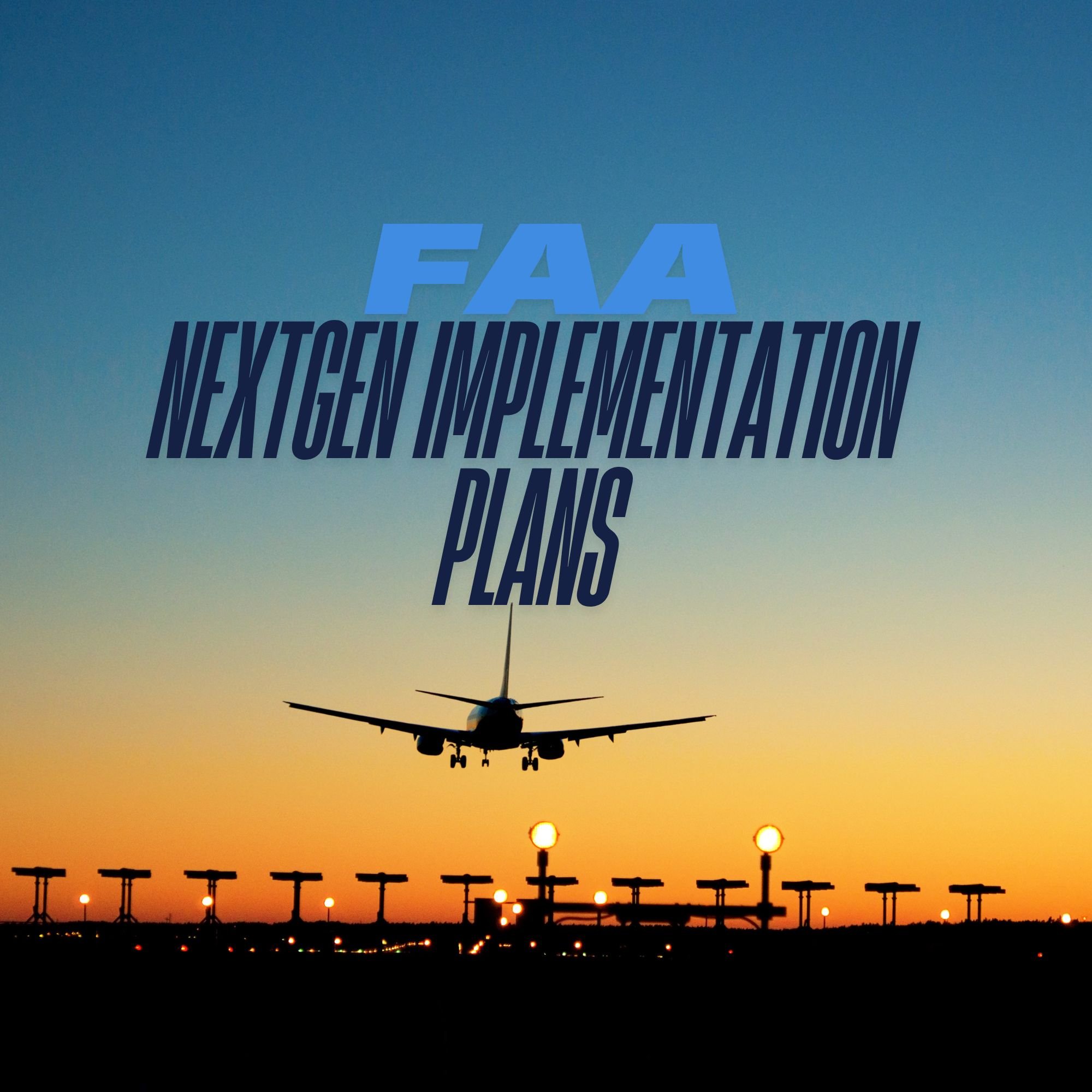FAA Order JO 7930.2 – Notices to Air Missions (NOTAMs)
FAA Order JO 7930.2, "Notices to Air Missions (NOTAMs)," provides comprehensive guidance on the issuance, format, and management of NOTAMs within the National Airspace System (NAS). It outlines procedures for creating, distributing, and canceling these critical notices, which inform pilots and air traffic personnel of real-time hazards, changes, or conditions affecting flight safety—such as runway closures, navigation aid outages, or temporary airspace restrictions. The order ensures standardization across FAA facilities, detailing responsibilities for air traffic controllers, flight service personnel, and other stakeholders. Per JO 7930.2S (effective December 20, 2023, per FAA.gov), it aligns with ICAO standards and includes specific formats like the NOTAM D (domestic) and NOTAM L (local) classifications. This document is essential for maintaining safe and efficient aviation operations.
Legal Disclaimer:
Documents provided by ATC123 are unofficial copies of public records intended solely for training and educational purposes. They are not certified or endorsed by any government agency, including the FAA, and should not be used for operational decision-making or legal compliance. ATC123 assumes no liability for errors, omissions, or reliance on these materials. Users are responsible for verifying information with official sources before any operational use.
FAA Order JO 7930.2, "Notices to Air Missions (NOTAMs)," provides comprehensive guidance on the issuance, format, and management of NOTAMs within the National Airspace System (NAS). It outlines procedures for creating, distributing, and canceling these critical notices, which inform pilots and air traffic personnel of real-time hazards, changes, or conditions affecting flight safety—such as runway closures, navigation aid outages, or temporary airspace restrictions. The order ensures standardization across FAA facilities, detailing responsibilities for air traffic controllers, flight service personnel, and other stakeholders. Per JO 7930.2S (effective December 20, 2023, per FAA.gov), it aligns with ICAO standards and includes specific formats like the NOTAM D (domestic) and NOTAM L (local) classifications. This document is essential for maintaining safe and efficient aviation operations.
Legal Disclaimer:
Documents provided by ATC123 are unofficial copies of public records intended solely for training and educational purposes. They are not certified or endorsed by any government agency, including the FAA, and should not be used for operational decision-making or legal compliance. ATC123 assumes no liability for errors, omissions, or reliance on these materials. Users are responsible for verifying information with official sources before any operational use.
FAA Order JO 7930.2, "Notices to Air Missions (NOTAMs)," provides comprehensive guidance on the issuance, format, and management of NOTAMs within the National Airspace System (NAS). It outlines procedures for creating, distributing, and canceling these critical notices, which inform pilots and air traffic personnel of real-time hazards, changes, or conditions affecting flight safety—such as runway closures, navigation aid outages, or temporary airspace restrictions. The order ensures standardization across FAA facilities, detailing responsibilities for air traffic controllers, flight service personnel, and other stakeholders. Per JO 7930.2S (effective December 20, 2023, per FAA.gov), it aligns with ICAO standards and includes specific formats like the NOTAM D (domestic) and NOTAM L (local) classifications. This document is essential for maintaining safe and efficient aviation operations.
Legal Disclaimer:
Documents provided by ATC123 are unofficial copies of public records intended solely for training and educational purposes. They are not certified or endorsed by any government agency, including the FAA, and should not be used for operational decision-making or legal compliance. ATC123 assumes no liability for errors, omissions, or reliance on these materials. Users are responsible for verifying information with official sources before any operational use.






